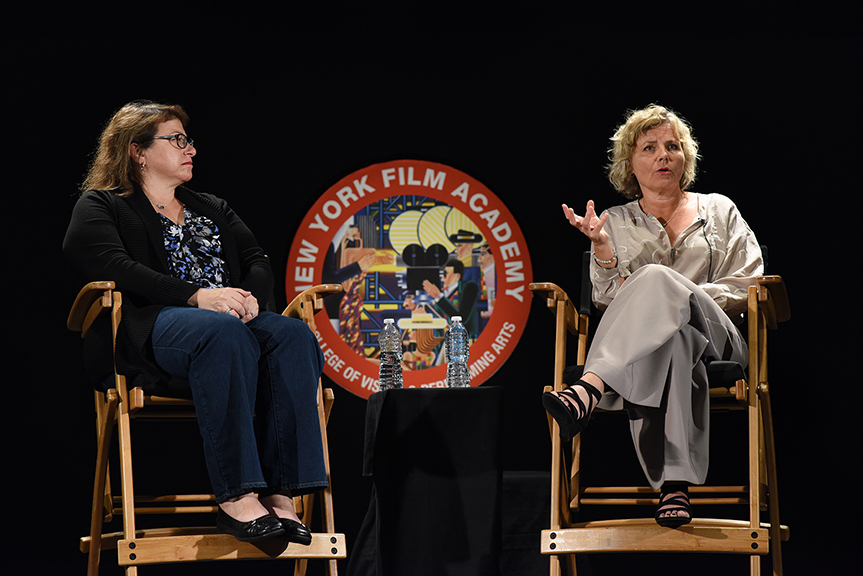
Since the beginning of 2000, the pursuit for gender equality in film has been an ongoing objective in Sweden. To reach that goal by the end of 2015, the Swedish Film Institute, led by its CEO Anna Serner, made an actionable plan with encouraging results. Under her guidance since 2011, the Swedish Film Institute has made Sweden the first-ever country to achieve 50:50 gender parity in terms of government financing for films. Last year, Serner succeeded in funding an equal number of films made by women and men in Sweden and Europe.
On Monday night, New York Film Academy students, faculty and staff were invited to attend a special lecture and discussion with Anna Serner, CEO of the Swedish Film Institute, to hear a presentation on a topic very much in the forefront here and abroad. That topic is gender equality in the film industry. Much has been said and written about the significant pay and role disparity in the acting field and the fact that women are under represented in the directing profession both qualitatively and quantitatively.
Ms. Serner, who presides over the institute, a governmental organization which reviews applications and grants funding to prospective filmmakers, presented a list of most common arguments to which she has been subjected that seek to reinforce that disparity in the Swedish film industry and tied those to the conditions that exist in the American film industry as well. The arguments include rationalizations ranging from accusations of funding by quota to ‘women just don’t want to be directors’. Her responses brought to light cultural obstacles and ways of thinking that perpetuate these misconceptions.
Regarding the accusation of managing by quota she responded, “We don’t do quota.” She went on to say that if an organization does that they have two different funding mechanisms—quota and quality. She maintains that the primary criterion is always quality and commented at length throughout the presentation regarding the quality of female produced and directed works.
Key to overcoming these obstacles is a system in which female filmmakers are mentored and educated on how to navigate the system. Also key to moving forward, according to Serner, is an inclusive approach that helps to change male cultural paradigms, and brings distributors in early in the development of female led projects in order to make them vested sooner in the process and appreciate the evolution of the films in question.
